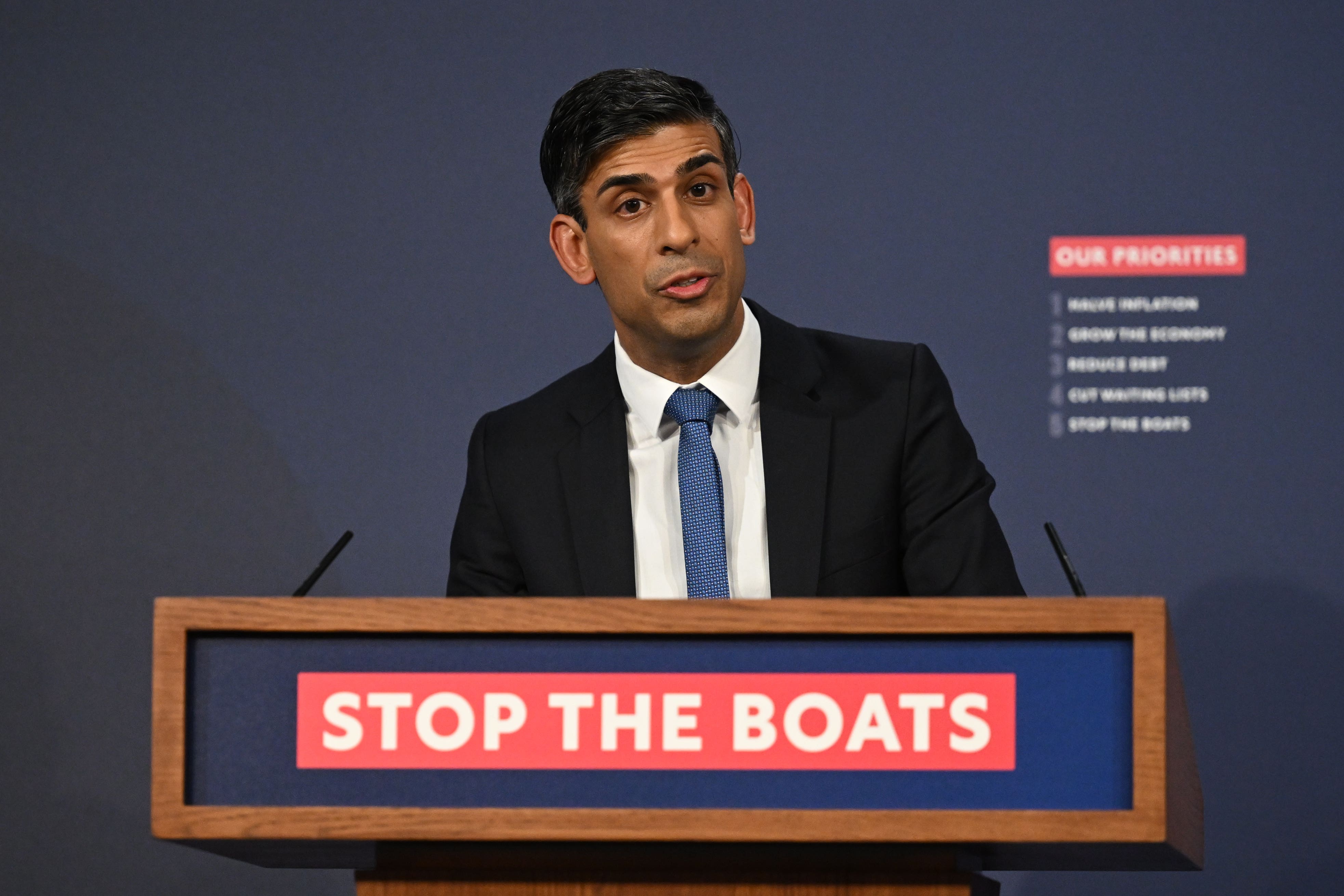Stopping Channel crossings not public’s main priority, polling suggests
Cost of living, the NHS and better-paid jobs were main concerns for more people, according to the research by Ipsos.

Your support helps us to tell the story
From reproductive rights to climate change to Big Tech, The Independent is on the ground when the story is developing. Whether it's investigating the financials of Elon Musk's pro-Trump PAC or producing our latest documentary, 'The A Word', which shines a light on the American women fighting for reproductive rights, we know how important it is to parse out the facts from the messaging.
At such a critical moment in US history, we need reporters on the ground. Your donation allows us to keep sending journalists to speak to both sides of the story.
The Independent is trusted by Americans across the entire political spectrum. And unlike many other quality news outlets, we choose not to lock Americans out of our reporting and analysis with paywalls. We believe quality journalism should be available to everyone, paid for by those who can afford it.
Your support makes all the difference.Fewer than a fifth of adults consider new laws on stopping Channel crossings to be among their main concerns – despite Rishi Sunak’s claim that it is the “people’s priority”, new polling has suggested.
Easing the cost of living, reducing NHS waiting lists, growing the economy and creating better-paid jobs are all seen as bigger concerns, according to research by Ipsos.
The online survey of 1,000 UK adults was carried out this week after the Government announced its controversial new proposals to tackle small boat crossings under the Illegal Migration Bill.
Unveiling the plans in the Commons on Tuesday, Home Secretary Suella Braverman said asylum seekers arriving illegally will be detained and face a lifetime ban on returning after they are removed.
The Bill was widely condemned by charities and the United Nations’ refugee agency said it amounted to an “asylum ban” which would prevent people fleeing war and persecution from seeking refuge in the UK.
Speaking during Prime Minister’s Questions in Parliament on Wednesday, Mr Sunak said: “Stopping the boats is not just my priority, it is the people’s priority.”
The polling, carried out between Wednesday and Friday, showed that 19% of those surveyed chose passing new laws to stop small boat crossings from France as one of their four most important priorities – a three percentage point increase from January.
Just over a quarter (27%) of those asked stated that making sure people who come to Britain illegally are detained and swiftly removed was a main priority, up four percentage points since January.
More than two thirds (67%) said easing the cost of living and giving people financial security was a priority, while 58% said ensuring people get the NHS care they need more quickly and 50% said reducing NHS waiting lists were main concerns.
Other priorities were growing the economy (36%), halving inflation this year (31%) and creating better-paid jobs and opportunities across the country (28%).
The five priorities set out by the Prime Minister at the beginning of the year were halving inflation, growing the economy, reducing debt, cutting NHS waiting lists and stopping small boat Channel crossings.
The Ipsos polling also suggested trust in the Conservative Party to have the right immigration policies has risen in the past month, now at 36% compared to 28% in February.
The Tories have also seen a rise in the percentage of people trusting them to to handle the issue of Channel crossings (33% up from 24%), and a 10 percentage point rise in trust that they will make it harder for people to enter the UK illegally, up from 30% last month.
The polling was done before the announcement on Friday that a deal had been agreed to tackle illegal immigration that will see the UK pay almost half a billion pounds over the next three years to fund a new detention centre in France and hundreds of extra law enforcement officers on French shores.
A third (33%) of those surveyed said Mr Sunak is doing a bad job as Prime Minister, up from 29% in February.
Some 29% of those asked this month think he is doing a good job.
Ms Braverman is doing a bad job according to 38% of those asked, up slightly from 37% last month, while less than a fifth (19%) think she is doing a good job – up from 12%.
Gideon Skinner, head of political research at Ipsos, said: “While it’s clear that this topic (immigration and asylum) is a priority for their own voters, the Conservatives can’t forget that for the public as a whole the cost of living, the economy and the NHS are all bigger issues, and they will be looking to the Government to deliver improvements on these as well.”